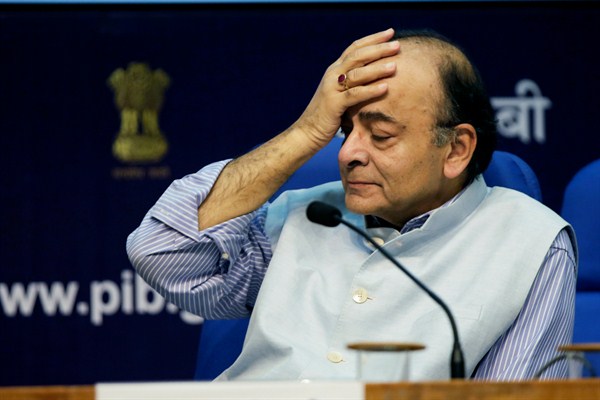After nearly a decade of deliberations and vehement debate, India’s parliament finally passed a unified goods and services tax earlier this month, marking the first significant economic reform under Prime Minister Narendra Modi. While correctly heralded as a major achievement that overhauls India’s convoluted tax system, the passage of this legislation nevertheless underscores how little Modi’s government has actually accomplished in its attempts to transform India’s economy.
Modi’s failure to implement a sweeping reform agenda seems like a paradox. After all, he swept into power in 2014 with the promise of reviving India’s faltering economy, putting an end to corruption, and providing sound governance. To his government’s credit over the past two years, it has presided over robust economic growth—albeit helped in some measure by low petroleum prices—and has avoided any major scandal involving members of the ruling Bharatiya Janata Party (BJP). Apart from confronting a wave of fresh violence in the disputed state of Kashmir, Modi has also been mostly successful in maintaining public order.
Despite these accomplishments, his government’s record of economic reform has been mostly lackluster. What explains Modi’s inability, despite a parliamentary majority, to forthrightly move ahead with a range of reforms that have long been on the agenda but have not been acted on since India fitfully embraced market-oriented policies in 1991?

